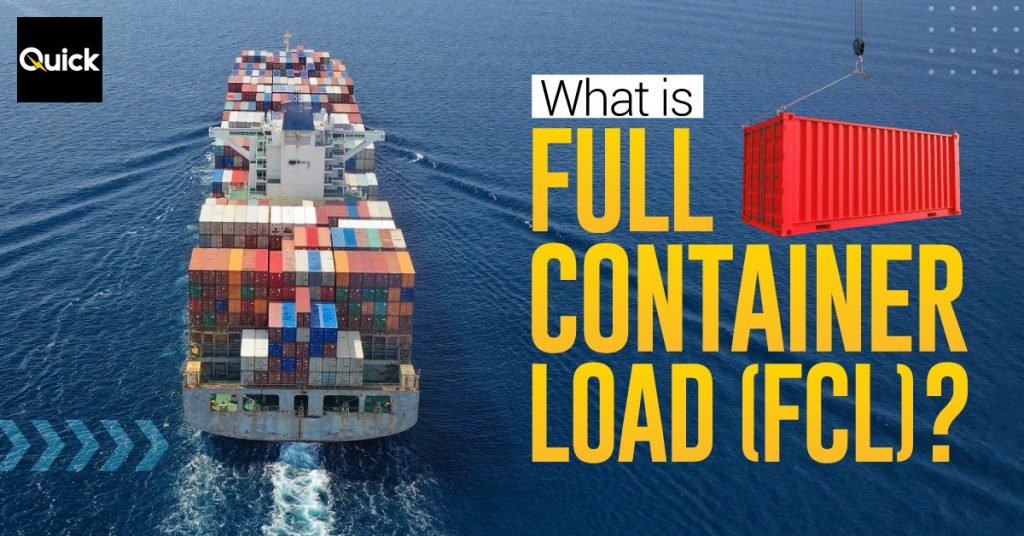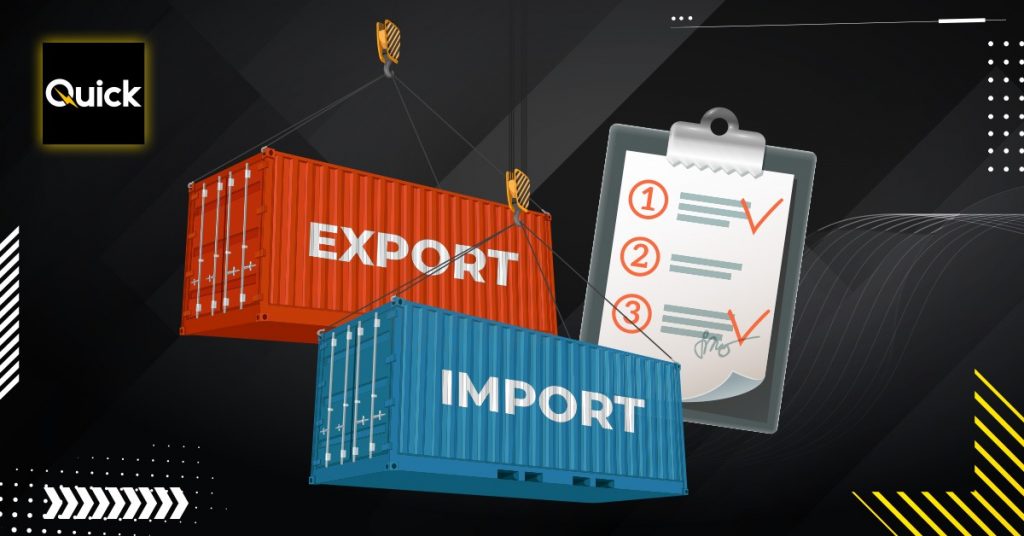
In the ever-expanding global market, efficient shipping solutions have become indispensable for companies seeking to streamline their supply chains. Among the various options available, Full Container Load (FCL) shipping stands out as a reliable choice for many businesses.
In this article, we’ll explore its key features, advantages, differences from Less than Container Load (LCL) shipping, and how companies can leverage it for their benefit.
FCL vs LCL
Before we dive deeper into our principal matter, it’s essential to grasp the fundamental difference between FCL and LCL shipping.
FCL, or Full Container Load, refers to a shipment method where a single customer books an entire shipping container, typically either a 20-foot or 40-foot container, depending on their cargo volume. This method is favored when a company’s cargo is substantial enough to fill a container efficiently.
On the other hand, LCL, or Less than Container Load, involves combining cargo from multiple shippers into a single container. LCL is the preferred choice when a company’s cargo volume doesn’t justify booking an entire container, and it aims to share container space with other shippers.
Advantages of FCL shipping
- Cargo safety and security: one of the most significant advantages is the enhanced security and safety of your cargo. Since the container is sealed at the point of origin and opened only at the destination, the risk of tampering, damage, or loss during transit is minimized.
- Efficient handling: these shipments are more straightforward to manage because they involve a single shipper and consignee. This leads to quicker loading and unloading times, reducing the chances of delays in your supply chain.
- Cost efficiency: while FCL shipping might seem costlier than LCL at first glance, it often turns out to be more cost-effective for substantial cargo volumes. You pay for the entire container space, but the per-unit cost for shipping large quantities tends to be lower than that of LCL shipments.
- Versatile packing: this allows you to load and pack your goods more flexibly. You have control over how your cargo is packed and arranged within the container, optimizing space and minimizing the risk of damage.
- Faster transit times: in many cases, FCL shipments experience shorter transit times compared to LCL shipments because they don’t involve the time-consuming process of consolidating cargo from multiple shippers.
Who it benefits?
FCL shipping can be a game-changer for various types of businesses:
- Manufacturers and exporters: manufacturers and exporters shipping large quantities of goods, such as machinery, electronics, or textiles, benefit from the security, cost-efficiency, and reliability of FCL.
- Importers: importers who frequently receive large shipments can optimize their supply chains by using FCL shipping, ensuring the timely delivery of products to their warehouses.
- Retailers and distributors: retailers and distributors that maintain substantial inventories often restock their shelves efficiently.
- E-commerce companies: e-commerce businesses dealing with bulk products or large-scale imports can streamline their operations with FCL shipping, reducing lead times and ensuring product availability.
Examples
To illustrate the real-world impact of FCL shipping, let’s look at a couple of examples:
- XYZ Electronics, a multinational electronics manufacturer, was facing significant delays and product damage issues with their LCL shipments. They decided to switch to FCL for their high-value electronic components. By doing so, they not only reduced transit times but also eliminated product damage during transit. This shift improved their overall supply chain efficiency and customer satisfaction.
- ABC Retailers, a chain of home improvement stores, heavily relies on seasonal products. To ensure timely availability of products during peak seasons, they opted for FCL shipping for their larger product categories. This allowed them to restock their stores quickly, meet customer demands, and maximize sales during crucial periods.
In the realm of international shipping, Full Container Load stands tall as a dependable choice for businesses dealing with substantial cargo volumes. Its advantages, including cargo safety, efficient handling, cost efficiency, versatile packing, and faster transit times, make it an excellent option for manufacturers, importers, retailers, and e-commerce companies.
For those considering it as their preferred shipping method, partnering with a trusted logistics provider is key. Quick, known for its expertise in neutral shipping, offers comprehensive solutions to streamline your cargo’s journey.
With us, you not only gain access to the advantages maritime transportation but also benefit from a team of logistics experts dedicated to ensuring your cargo reaches its destination securely and efficiently.
By understanding the benefits of FCL and examining real-life success stories, businesses can harness the potential of this shipping method to optimize their supply chain and enjoy a seamless shipping experience with Quick.

